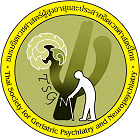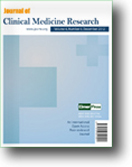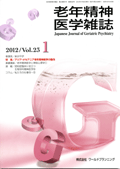Outcome Inventory (OI-21) Thai.pdf
OI-21 Eng.pdf
(Many thanks to Mr. Justin DeMaranville in back translating for some items)
OI-21 Chinese version.pdf
OI-21 Scoring.pdf
Outcome Inventory-21 (OI-21)
Reference: Development and validation of 21-item outcome inventory (OI-21): Heliyon (cell.com)
OI-21 เป็นแบบสอบถามที่พัฒนาขึ้นเองโดยทินกร วงศ์ปการันย์และณหทัย วงศ์ปการันย์ สอบถามอาการหลักที่พบบ่อยทางจิตเวช 4 ชนิด ได้แก่ ซึมเศร้า วิตกกังวล อาการทางร่างกาย (somatization) และปัญหาทางสัมพันธภาพ แบบสอบถามนี้มีมาตรวัดแบบ Likert scale โดยผู้ตอบจะให้คะแนนในข้อที่ตรงกับความรู้สึกของตนเองมากที่สุดตั้งแต่ “ไม่เลย” ไปจนถึง “แทบจะตลอด” จำนวน 21 ข้อ ผลการทดสอบคุณสมบัติทางจิตวิทยาในนักศึกษา 200 คนผู้ป่วย 150 คน พบว่ามีค่า Cronbach’s α 0.92 มี ใช้เวลาทำประมาณ 5-10 นาที
OI-21, developed by Tinakon Wongpakaran and Nahathai Wongpakaran, is a 21-item self-report questionnaires, measuring level of anxiety (item 3, 7, 9, 11, 15, 20), depression (items 2, 5, 14, 18, 21) , somatization (items 1, 6, 8, 12, 17, 19) , and interpersonal difficulty (items 4, 10, 13, 16) . It is 5-Likert type response, from “0(never)” to “4(almost always)”.
Psychometric properties
OI-21 was investigated using confirmatory factor analysis in a mixed sample of 1452 (psychiatric patients and relatives, students, and residents from Juvenile observation and protection center). The mean age of the sample was 26.56 (SD11.47) min-max = 10-87 years, and 63.2% was female. The results showed that the second-order four-solution model was best fitted to the data. The fit statistics were CFI = .957, TLI = .947, RMSEA = .045 (90%CI =.041-.048). Among clinical sample, Cronbach’s alpha for the OI-21 was 0.92; and the Cronbach’s alpha for each sub-scale was 0.80, 0.82, 0.80, and 0.87 for interpersonal difficulty, anxiety, somatization, and depression.
Rasch analysis results show that the combined anxiety-depression subscale fits with the Rasch measurement model. The anxiety-depression subscale was unidimensional ( 1st contrast = 1.80, disattenuated correlation between person measure = .9523), no local dependence, INFIT/OUTFIT MNSQ ranges from 0.84-1.50. Person SEPARATION = 2.13, PERSON RELIABILITY .82, Cronbach’s alpha = .88. Item SEPARATION = 19.61, and ITEM RELIABILITY = 1.00. No category item or threshold is found.
Coding and scoring
No reversing values is required before summing up. The OI-21 scores range from 0 to 84.
Interpretation
In general, the higher the score, the more the symptom were indicated. However, we could use the distribution of scores based on the respective sample. For example, a high vs. low level of anxiety score, or a level of OI-21 among the samples could be grouped in three categories: “low” for scores below the 25th percentile, “average” for scores ranging from the 25th to the 75th percentile and “high” for scores above the 75th percentile.
Recommendation for use
Total score of OI-21should be used without the sub-scale of interpersonal difficulty ( only anxiety + depression+ somatization). In another word, the interpersonal difficulty sub-scale should be used separately. The anxiety - depression sub-scale provides the best reliability and validity especially for follow-up assessment.
In using OI-21 as an outcome measure, a minimum score to determine change for each symptom (reliable change index) is not yet produced.
In terms of accuracy of the OI-Depression (OI-Dep) subscale in predicting depression against the gold standard clinical interview diagnosis, we used the area under the ROC curve as the criterion to compare the set of items. In 422 adult clinical sample, the OI-Dep subscale provided the area under the curve of 0.886 denoting good accuracy performance. With the cut-off score of ≥ 7, it yielded a sensitivity of 82.72 and specificity of 78.35, PPV of 76%, and NPV of 84.6%.














